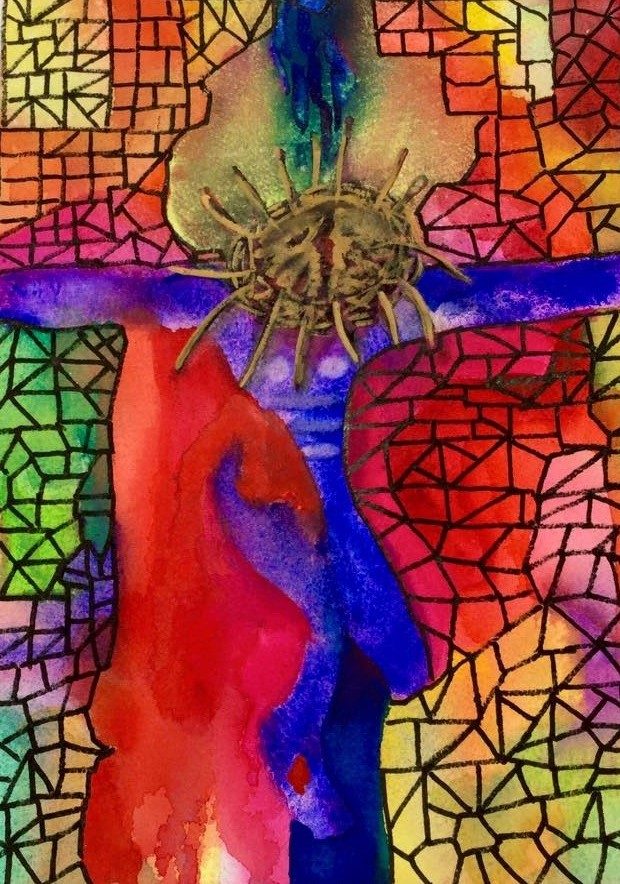Moses had a lot of experience with miraculous occurrences concerning water. When he and the children of Israel were wandering around in the wilderness of Sinai, they had just narrowly escaped the clutches of the Pharaoh and his army. The only reason that their flight was successful was because Yahweh endued Moses’ staff with power and instructed him to stretch out his hand over the Red Sea and divide it so the people could pass over on dry ground.
The Lord made certain that the chariots of Pharaoh and his army were delayed by causing the wheels to come off of their chariots during their pursuit of the children of Israel through the middle of the Red Sea. This was a startling development to the Egyptians and when they realized that Yahweh was fighting for Israel, they decided to turn and flee.
Unfortunately for them, they relented too late and were overwhelmed by the collapse of the standing walls of the Red Sea upon them covering and drowning all the Egyptians and all of their horses in a watery grave. What would have been the total annihilation of the Jewish people ended up being the end of the mighty ruling power of the Pharaoh of Egypt and all his powerful military forces.
Later in their journey through the wilderness of Sin, the people began to be parched and dry with thirst and, in their state of dehydration, they began to complain against Moses and grumble about his bringing them out of Egypt only so that they could die of thirst, along with their children and livestock. Moses feared for his life that they might stone him, and he went before Yahweh with his concerns.
During their conversation, Yahweh said to Moses, “Pass before the people and take with you some of the elders of Israel; and take in your hand your staff with which you struck the Nile (during the ten plagues upon Pharaoh’s house), and go. Behold, I will stand before you there on the rock at Horeb; and you shall strike the rock, and water will come out of it, that the people may drink.” (Exodus 17:4-6) Moses did so and the people did drink their fill, along with their beasts.
As they proceeded and began to pass through the wilderness of Zin, a similar situation arose in which the people where grumbling and complaining of dire thirst. They had a tremendous propensity to forget about the Lord’s miracles of protection and provision and to simply believe what they could see in the physical realm. Again, Moses went to speak with the Lord about the problem. However, this time the Lord gave a different set of instructions to Moses and apparently He meant for His instructions to be adhered to according to the letter.
In the book of Numbers 20, verse 8 we read, “Take the rod; and you and your brother Aaron assemble the congregation and speak to the rock before their eyes, that it may yield its water. You shall thus bring forth water for them out of the rock and let the congregation and their beasts drink.” Moses did not follow God’s instructions for this water miracle, but rather improvised according to his own words and actions. He took the opportunity to chastise the people and call them rebels, and he inadvertently took credit for the miracle rather than attributing it to God by saying, “Listen now, you rebels; shall we bring forth water for you out of this rock?”
After so speaking, Moses then lifted up his rod and struck the rock, rather than speaking to it as he was instructed. This innovation on his part cost Moses his opportunity to go into the Promised Land with his people. God was offended that Moses did not believe Him that speaking to the rock would be sufficient. He also noted that Moses did not regard Him as Holy before the children of Israel.
Our Holy Bible, the Word of God, is replete with symbols that foreshadow the coming of, or represent the Person of, Jesus Christ. Seminary classes are taught on this topic, with textbooks that are full of numerous examples in Scripture. If we move forward into the New Testament in the book of John, chapter 4, we find a woman making a solitary journey to draw water from Jacob’s well at an odd time of day. This well brought forth water that had been encased in the rocky ground. There she encounters the Messiah, Lord Jesus Christ, and He reaches out to her and draws her into a conversation with Him about the well and the water.
During the course of their discussion the woman’s barren quest for human warmth and fellowship through romantic relationships is revealed. Nervously, she continues to discuss the well and the water, as well as the social conventions that should have precluded Jesus’ talking with her at all. Jesus proclaims to her that He could give her living water to drink and that when she drank it she would never thirst again. Of course, she accepts His offers and experiences a complete transformation of her spirit.
Yes, whether our Lord Jesus Christ is represented as a wall of protecting water in the Red Sea, a rock in the wildernesses of Sin or Zin that brought forth a rivulet of water to refresh the children of Israel in their depletion, or a well that issues forth living waters in Sychar, Jesus is always the Rock that we can rely on to bring forth and provide a fount of flowing spiritual waters that will wash over and through those of us that accept Him and the salvation that He offers freely. These living waters enliven and empower all those in the Body of Christ who receive Him as we live in His provision and under His care.

